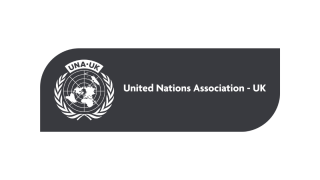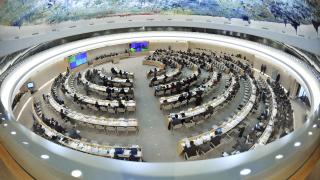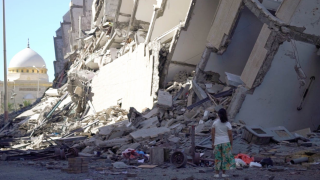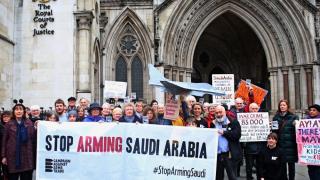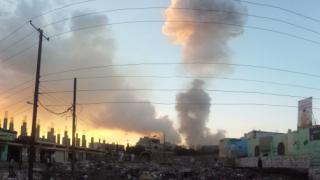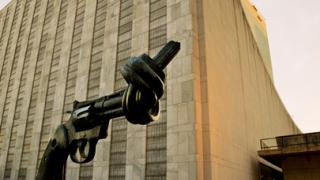
UNA-UK welcomes the latest report of the Committees on Arms Export Controls, which scrutinises UK arms licencing over the past year.
Published on 23 July 2014, the report questions the UK’s judgement and approach on a number of key arms export licencing issues.
As with last year’s report, the Committees used the opportunity to highlight the questionable practice of granting licences to states classified by the Foreign and Commonwealth Office as 'Countries of Human Rights Concern'. Current licences to these countries - which include conflict-ridden countries in the Middle East as well as repressive governments such as Sri Lanka and Saudi Arabia - are worth almost £12bn.
Sir John Stanley, Chairman of the Committees, has urged “a more cautious approach” from the UK Government when considering arms export licences to authoritarian regimes.
Having ratified the Arms Trade Treaty, the UK is bound by international law to refrain from acts which would defeat the object and purposes of the Treaty. Designed to reduce the devastating effect of armed violence, the Treaty prohibits the authorisation of arms transfers where there is knowledge that the arms would be used in the commission of attacks directed against civilian objects or civilians.
As well as direct concerns that this equipment could be misused, continued UK military support to countries with bad human rights records risks legitimising these regimes and damaging the UK’s reputation as a champion of responsible arms exports.
See below for detailed analysis of the report.
Russia
Despite suspending some Russian licences in March 2014, the report notes that £132 million worth of standard licences are still live, as are almost 50 open licences, for which no value figures are available. Not only does this represent a steep increase compared to the previous year, but also appears at odds with remarks made by the UK Prime Minister on 22 July stating that “we have already unilaterally, as have the US, said that we would not sell further arms to Russia. We believe other European countries should be doing the same thing”.
Whist UNA-UK welcomes the UK Government’s decision to suspend the granting of new arms export licences to Russia, clarification is needed on existing licences which are still live.
Israel
Licences to Israel and Occupied Palestinian Territories make up around two thirds of the £12bn transfers to FCO countries of concern. Whilst this mainly relates to the sale of cryptographic equipment, it also includes licences for the export of anti-riot gear, equipment for military combat vehicles, sniper rifles and unmanned aerial vehicles.
As well as direct concerns that this equipment could be misused, continued UK military support to Israel risks endorsing an approach that has widely been criticised as disproportionate and contrary to international law.
Given the dire humanitarian situation and the ongoing violence, UNA-UK believes that the UK should immediately suspend all licences for military equipment to Israel and OPT.
Dual-use chemicals to Syria during the period 2004-2012
In its examination of UK exports that could be used to manufacture chemical weapons in Syria, the Committees concluded that decisions to approve licences of dual-use chemicals by the previous Government had been “highly questionable” and the decision by the current Government to approve two export licences in January 2012, after the civil war had begun, had been “irresponsible”.
Unmanned Aerial Vehicles
The newly-published data reveals that licences have been granted to supply drone technology and equipment to Israel, Pakistan, Russia and Saudi Arabia, all of whom are on the FCO’s list of countries of concern. Given the current volatility in the Middle East and Eastern Europe, the UK needs to reassess the risks of supplying such goods, which, at worst stand to undermine peace and security, and at best, set a dangerous precedent in regions already fraught with conflict.
Committees’ countries of concern
In addition to the FCO’s Countries of Human Rights Concern, the Committees widened their scrutiny to include a further five countries of concern: Argentina, Bahrain, Egypt, Tunisia and Ukraine.
At £165m, the total value of standard licences granted to these countries is relatively small (values are not available for open licences). However, the nature of some of the goods approved for export do raise concerns, including for transfers of sniper rifles to Ukraine, and riot gear and assault rifles to Bahrain and Egypt. The Committees have asked for further information from the Government with regard to the decision to grant these licences.
Anti-piracy equipment
The report draws attention to a vast quantity of equipment approved for transfer to Private Marine Security Companies for counter-piracy purposes. During the period April 2012 to September 2013, transfers of lethal weaponry were approved, including 34,377 assault rifles, 12,816 rifles, 5,100 shotguns and 2,976 pistols.
The Committees concluded that it is a “matter of much concern” that the Department for Business, Innovation & Skills (BIS) appears to have been unaware of the volume of approved weapons for counter-piracy, despite the data coming from BIS’s own records.
The report also revealed a concerning mismatch between the volume of weapons authorised for transfer and the volume of weapons actually shipped. During 2012 and 2013, 181,708 individual items were approved for export but only 3,273 (1.8%) were actually shipped.
This mismatch reveals an astonishing lack of rigor and vigilance on behalf of the licencing authorities. The laissez-faire granting of licences for lethal weaponry to Private Marine Security Companies, with all the associated risks of re-selling, diversion and misuse, is an area of licencing in need of urgent reform. Such reform should include more comprehensive reporting measures, including the reinstatement of the scrapped ‘transparency initiative’ (see below) and proactive monitoring of licence vs. delivery data.
Transparency initiative
We are pleased to see that the Committees’ report includes a recommendation for BIS to reinstate its original plans to provide more information on transfers made under open licences; an issue UNA-UK and others raised with Vince Cable, BIS Secretary of State, earlier this year.
The Government’s scaling back of the transparency initiative was announced last summer and constitutes a significant reversal on previous commitments to improve transparency with regard to open licences, with worrying implications for the ability of Government to keep track of actual arms exports (see Anti-piracy equipment section above) and for Parliament and civil society to scrutinise Government decision-making.
Specifically, this reversal means holders of open export licences will not be required to submit for public reporting the control list classification or descriptions of the strategic controlled goods they are exporting.
The current system of reporting is clearly inadequate, and becoming more so as an increasing proportion of UK arms exports are being organised under open licences. The Government is therefore less and less able to answer the basic question: what strategic goods are being exported from the UK?
Arms Trade Treaty: extra-territoriality extended to arms brokering
It is welcome that the UK has strengthened its brokering controls to become compliant with the Arms Trade Treaty. UK persons brokering weapons included on the ATT’s control list (such as battle tanks, large calibre artillery systems, combat aircraft and attack helicopters) will no longer be able to escape UK criminal jurisdiction by operating overseas.
The Committees have sought further clarification from the UK Government as to whether extra-territorial controls should be extended further to cover direct exports by UK persons overseas and whether the list of controlled items should be extended to include military goods such as riot control equipment.
Image: The “Non-Violence” (or “Knotted Gun”) sculpture by Swedish artist Carl Fredrik Reuterswärd on display at the UN Visitors’ Plaza (c) UN Photo/Rick Bajornas

